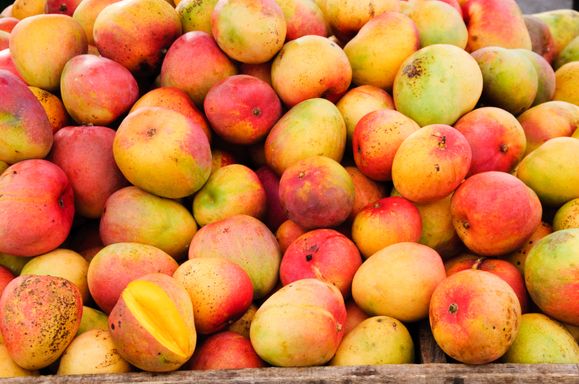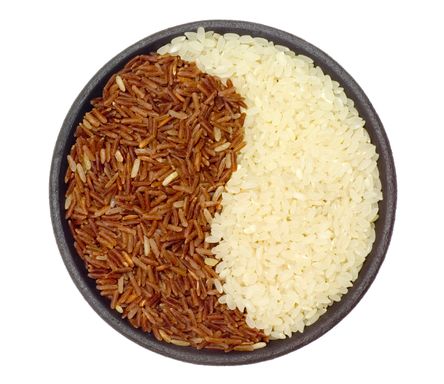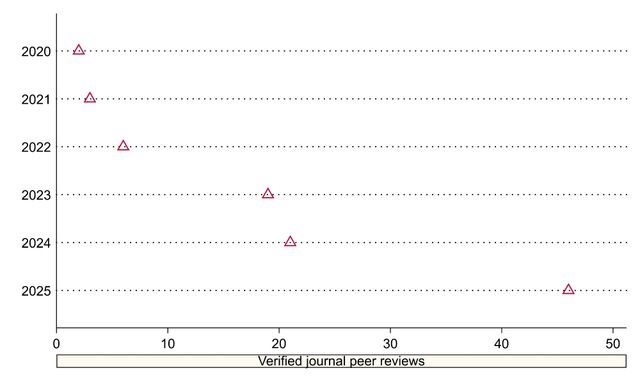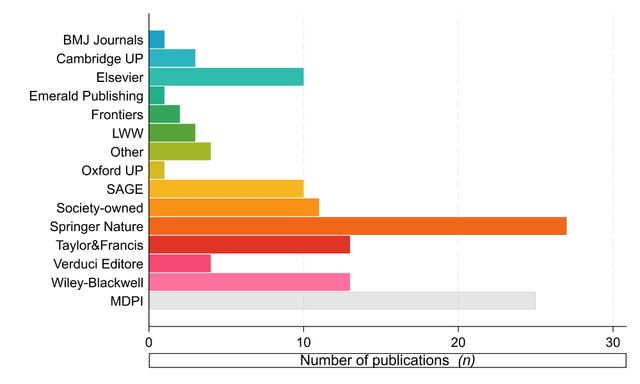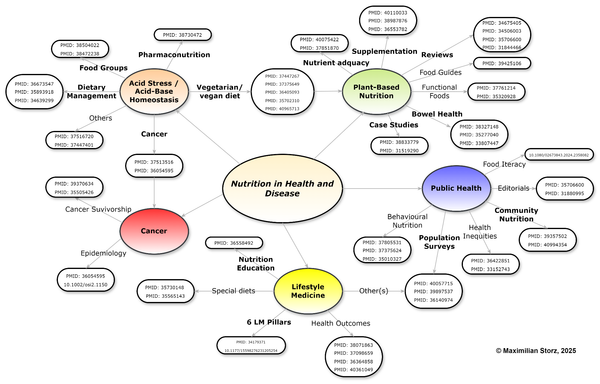Selected Publications
Selected publications
Overview
Dr. Storz has a strong interest in medical nutrition therapy, lifestyle medicine and plant-based nutrition. A list of selected publications with his involvement and a short background description of selected projects can be found below. We are happy to answer any questions regarding these projects.
Research Map / Metrics
Last updated: December 2025
Figure 1 displays peer review activities in scientific journals. Figure 2 displays the publishers we published with in the past years. Figure 3 maps our research activities in a larger context. Figure 4 summarizes author metrics. Obtained via: Harzing, A.W. (2007) Publish or Perish, available from https://harzing.com/resources/publish-or-perish
Selected Publications
Nutrient intake in low-carbohydrate diets in comparison to the 2020-2025 Dietary Guidelines for Americans: a cross-sectional study
The percentage of US adults following low-carbohydrate diets (LCD) doubled in the last decade. Some researchers observed this trend with concern and highlighted the potential for nutritional deficiencies and impaired overall diet quality with LCD. The present study investigated nutrient intake in a nationally representative sample of 307 US adults following an LCD. Using cross-sectional data from the National Health and Nutrition Examination Surveys, we compared nutrient intake profiles in said individuals with the daily nutritional goals specified in the current 2020-2025 Dietary Guidelines for Americans (DGA).
DOI: 10.1017/S0007114522001908
Storz MA, Ronco AL. Nutrient intake in low-carbohydrate diets in comparison to the 2020-2025 Dietary Guidelines for Americans: a cross-sectional study. Br J Nutr. 2022 Jun 22;129(6):1-14.


Status of animal experimentation in nutrition and dietetic research: Policies of 100 leading journals and new approach methodologies
Given animal research is challenged with inadequacies, e.g., animal-to-human knowledge translation, ethical considerations, and cost:benefit, new approach methodologies (NAMs) have been proposed as a replacement. With reference to the field of nutrition and dietetics, our aim was to examine the policies of its leading journals regarding human-based vs. traditional animal-based research; and to explore emerging NAMs that provide alternatives to animal experimentation. We reviewed 100 leading journals from an established database (SCImago Journal Rankings) in the nutrition and dietetics category for the year 2022. Eighty-three journals met the inclusion criteria.
DOI: 10.1080/08989621.2024.2398104
Storz MA, Dean E. Status of animal experimentation in nutrition and dietetic research: Policies of 100 leading journals and new approach methodologies. Account Res. 2024 Sep 18:1-19.
Impact of vitamin B12 supplement intake cessation on vitamin B12 status in a healthy vegan: A close interval monitoring case study
Healthy plant-based diets, such as the the vegan diet, offer numerous benefits to human health. Poorly designed plant-based diets, however, bear the risk for vitamin- and micronutrient deficiencies. Vitamin B12 (B12, cobalamin) is a nutrient of particular concern in both diets, and should be readily supplemented on a continuous basis to ensure adequate B12 levels and to prevent deficiencies.This case reports describes the history of a healthy man in his mid-30s who adopted a vegan diet approximately 10 years ago.
DOI: 10.1016/j.nut.2024.112498
Storz MA, Huber R, Hannibal L. Impact of vitamin B12 supplement intake cessation on vitamin B12 status in a healthy vegan: A close interval monitoring case study. Nutrition. 2024 Sep;125:112498. doi: 10.1016/j.nut.2024.112498. Epub 2024 May 7. PMID: 38833779.
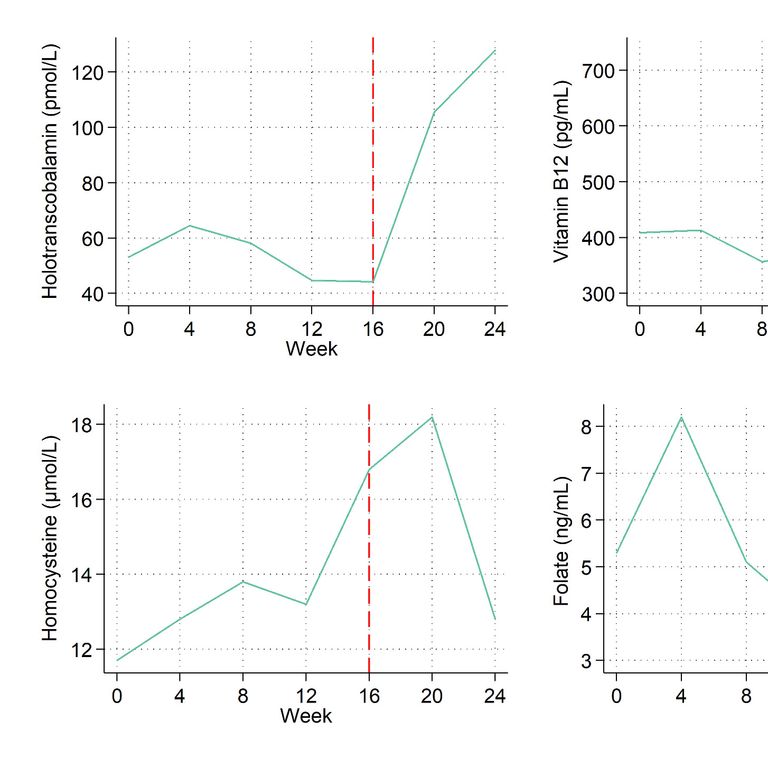
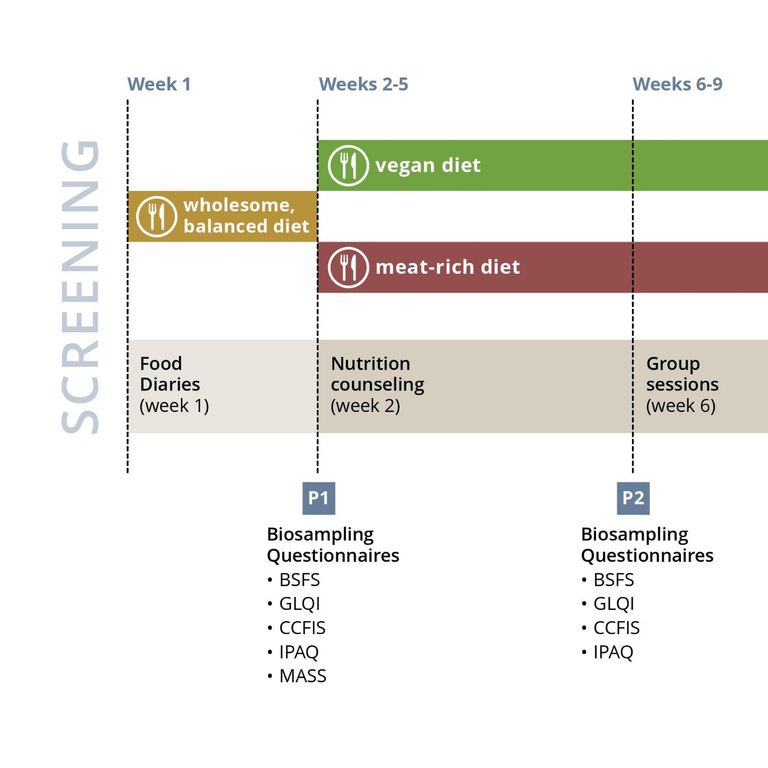
Bowel health, defecation patterns and nutrient intake following adoption of a vegan diet: a randomized-controlled trial
The beneficial effects of a plant-based diet on gut microbiota diversity are well documented, however, its impact on clinical bowel health and defecation patterns are less well understood. Vegetarian diets have been associated with a higher bowel movement (BM) frequency as well as softer stools in cross-sectional studies. The effects of the de-novo adoption of a vegan diet on bowel health, however, have never been investigated in a randomized-controlled trial. The present study examined bowel health and defecation patterns in relation to diet and nutrient intake in a young and healthy sample of n = 65 physically-active German university students who were randomly assigned to either a vegan or a meat-rich diet for eight weeks.
DOI: 10.1080/07853890.2024.2305693
Herter J, Stübing F, Lüth V, Zimmermann J, Lederer AK, Hannibal L, Huber R, Storz MA. Bowel health, defecation patterns and nutrient intake following adoption of a vegan diet: a randomized-controlled trial. Ann Med. 2024 Dec;56(1):2305693.
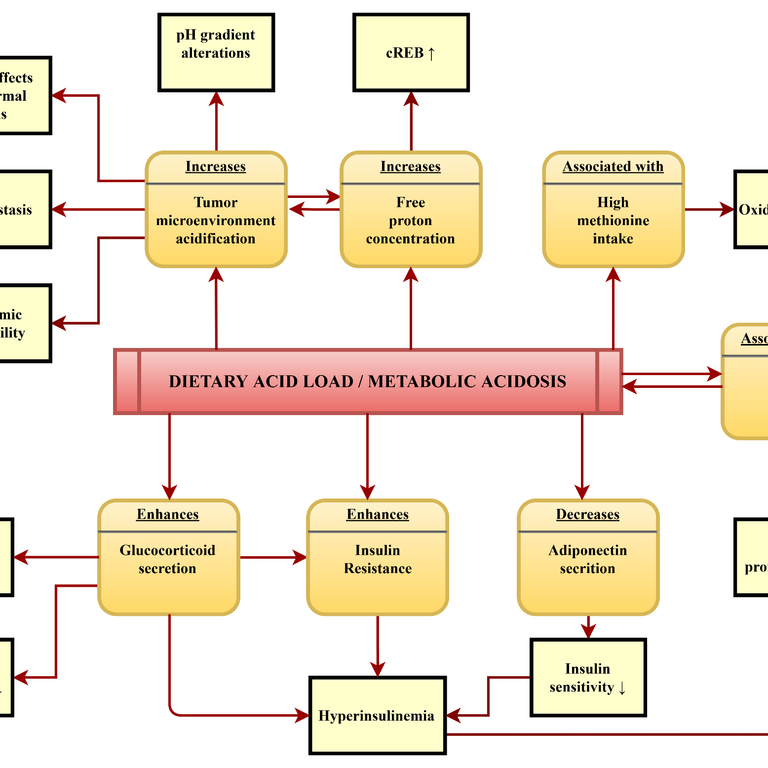
Dietary Acid Load and Cancer Risk: A Review of the Uruguayan Experience
Dietary acid load (DAL) is recognized as a risk factor for several chronic disorders, including obesity, diabetes, and osteoporosis. Recent evidence suggests that an elevated DAL, as measured by the validated potential renal acid load (PRAL) and net endogenous acid production (NEAP) scores, could also increase the risk for several cancers. This narrative review summarizes the potential role of DAL in Uruguayan cancer patients and outlines the potentially involved pathophysiological pathways that mediate the role of DAL in both cancer development and growth.
DOI: 10.3390/nu15143098
Ronco AL, Storz MA. Dietary Acid Load and Cancer Risk: A Review of the Uruguayan Experience. Nutrients. 2023 Jul 11;15(14):3098.
The Impact of Plant-Based Diets on Dietary Acid Load Metrics in Venezuela: A Cross-Sectional Study
Dietary acid load (DAL) is an important determinant of the acid-base balance in humans and has been associated with several chronic non-communicable diseases. Plant-based diets, including vegetarian and vegan diets, decrease DAL-although their alkalizing potential varies substantially. We assessed the associations between three plant-based dietary patterns (flexitarian vs. lacto-ovo-vegetarian vs. vegan diet) and DAL scores in a healthy Venezuelan population in the metropolitan area of Puerto La Cruz, Venezuela.
DOI: 10.3390/nu15122745
Ekmeiro-Salvador JE, Storz MA. The Impact of Plant-Based Diets on Dietary Acid Load Metrics in Venezuela: A Cross-Sectional Study. Nutrients. 2023 Jun 14;15(12):2745.
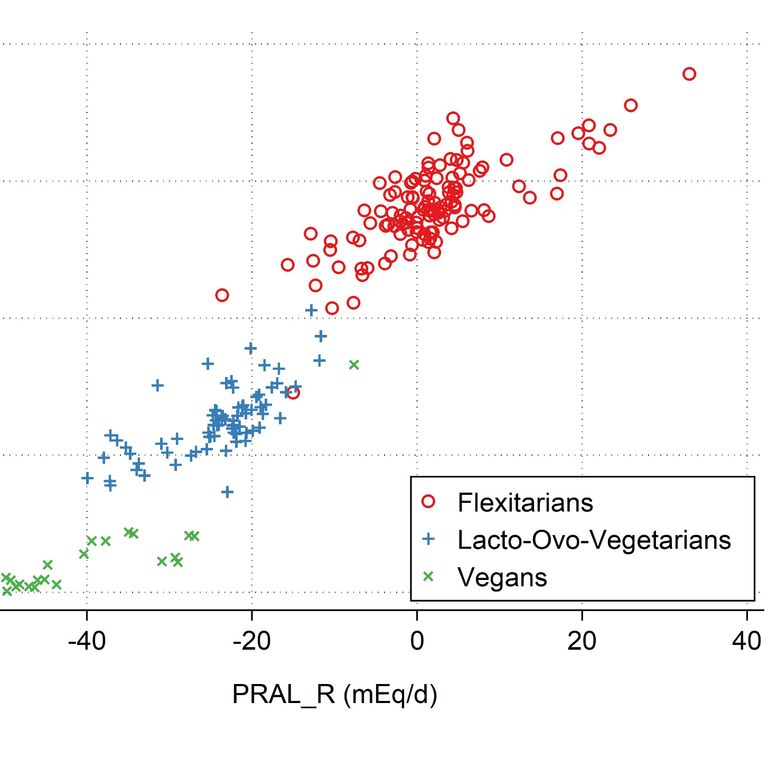
A Vegan Diet Is Associated with a Significant Reduction in Dietary Acid Load: Post Hoc Analysis of a Randomized Controlled Trial in Healthy Individuals
The composition of diet strongly affects acid-base homeostasis. Western diets abundant in acidogenic foods (meat and cheese) and deficient in alkalizing foods (fruits and vegetables) increase dietary acid load (DAL). A high DAL has been associated with numerous health repercussions, including cardiovascular disease and type-2-diabetes. Plant-based diets have been associated with a lower DAL; however, the number of trials exploring this association is limited. This randomized-controlled trial sought to examine whether an isocaloric vegan diet lowers DAL as compared to a meat-rich diet.
Müller A, Zimmermann-Klemd AM, Lederer AK, Hannibal L, Kowarschik S, Huber R, Storz MA. A Vegan Diet Is Associated with a Significant Reduction in Dietary Acid Load: Post Hoc Analysis of a Randomized Controlled Trial in Healthy Individuals. Int J Environ Res Public Health. 2021 Sep 23;18(19):9998.
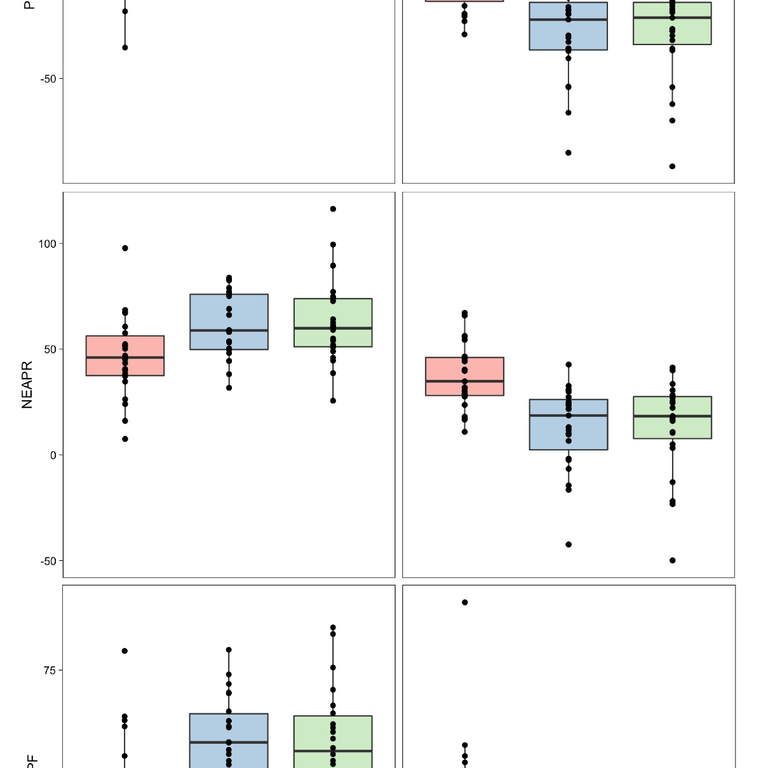

What makes a plant-based diet? a review of current concepts and proposal for a standardized plant-based dietary intervention checklist
Within the last decades, plant-based diets have received increasing interest for their potential benefits to human and environmental health. The concept of plant-based diet, however, varies widely in its definition. Current definitions range from the exclusion of all animal products to diets that include meat, fish, and dairy in varying quantities. Therefore, the main objectives of this review were twofold: (a) to investigate how researchers use the term plant-based diet in nutrition intervention studies and (b) what types of food a plant-based diet may include. Searching two databases, we found that the term "plant-based diet" evokes varying ideas to researchers and clinicians.
DOI: 10.1038/s41430-021-01023-z
Storz MA. What makes a plant-based diet? a review of current concepts and proposal for a standardized plant-based dietary intervention checklist. Eur J Clin Nutr. 2022 Jun;76(6):789-800.
Does Self-Perceived Diet Quality Align with Nutrient Intake? A Cross-Sectional Study Using the Food Nutrient Index and Diet Quality Score
A reliable diet quality (DQ) assessment is critical to empower individuals to improve their dietary choices. Controversies persist as to whether self-perceived DQ is accurate and correlated with actual DQ as assessed by validated nutrient intake indexes. We used National Health and Nutrition Examination Surveys data to examine whether a higher self-perceived DQ was positively associated with a more optimal nutrient intake as reflected by the Food Nutrient Index (FNI) and Diet Quality Score (DQS).
DOI: 10.3390/nu15122720
Storz MA. Does Self-Perceived Diet Quality Align with Nutrient Intake? A Cross-Sectional Study Using the Food Nutrient Index and Diet Quality Score. Nutrients. 2023 Jun 12;15(12):2720.
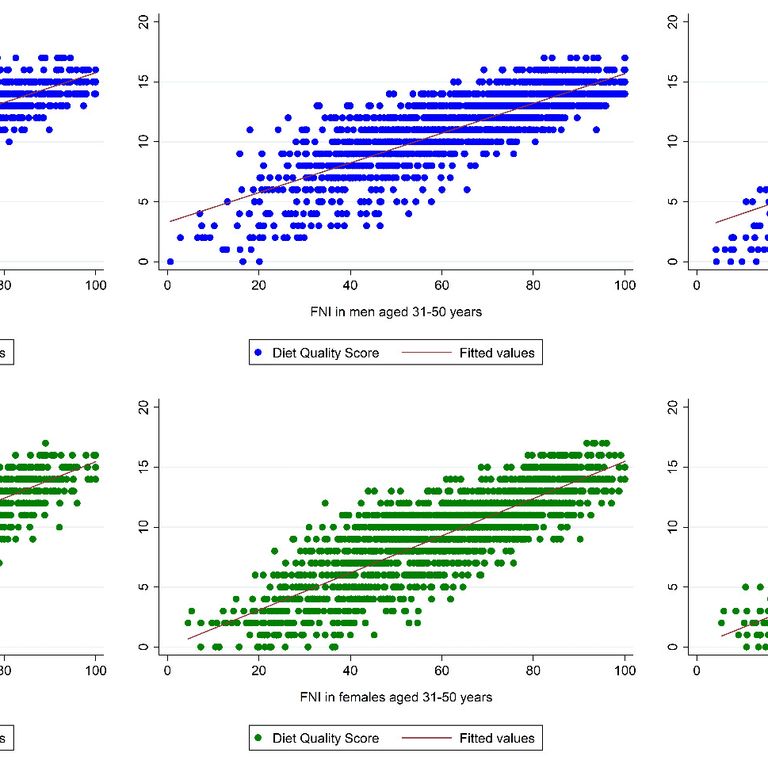
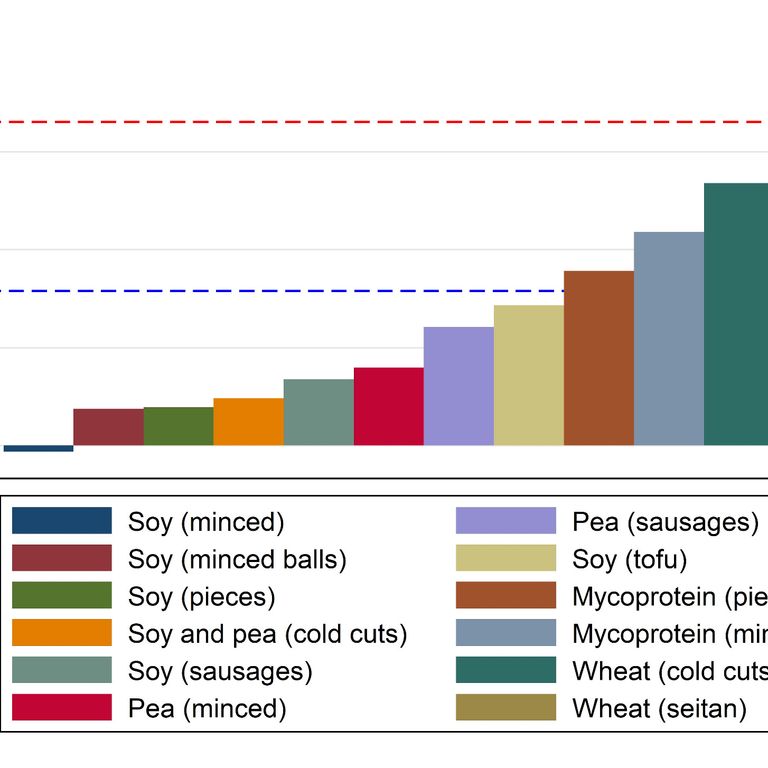
The potential renal acid load of plant-based meat alternatives
Plant-based meat alternatives (PBMAs) are food products derived from plants and designed to mimic the preparation methods, nutritional profile, and sensorial qualities of meat. PBMAs are currently subject to a controversial debate concerning their health value. Here, we reviewed PBMAs' potential renal acid load (PRAL). The PRAL is an estimate for the amount of acid or base a certain food produces in the human body, and was associated with tissue damage and acid stress.
DOI: 10.1038/s41430-024-01434-8
Herter J, Huber R, Storz MA. The potential renal acid load of plant-based meat alternatives. Eur J Clin Nutr. 2024 Mar 19.
Nutrition facts labels: who is actually reading them and does it help in meeting intake recommendations for nutrients of public health concern?
The usage of nutrition facts labels has been reported to increase the odds for dietary reference intake of fiber in some studies. The overall evidence, however, is mixed, as some studies suggested that nutrition facts panels have little to no effect on average measures of diet quality. Here, we investigated whether the usage of nutrition facts labels was associated with meeting U.S. intake recommendations for three nutrients of public health concern: fiber, potassium and calcium.
DOI: 10.1186/s12889-023-16859-2
Storz MA. Nutrition facts labels: who is actually reading them and does it help in meeting intake recommendations for nutrients of public health concern? BMC Public Health. 2023 Oct 7;23(1):1947.
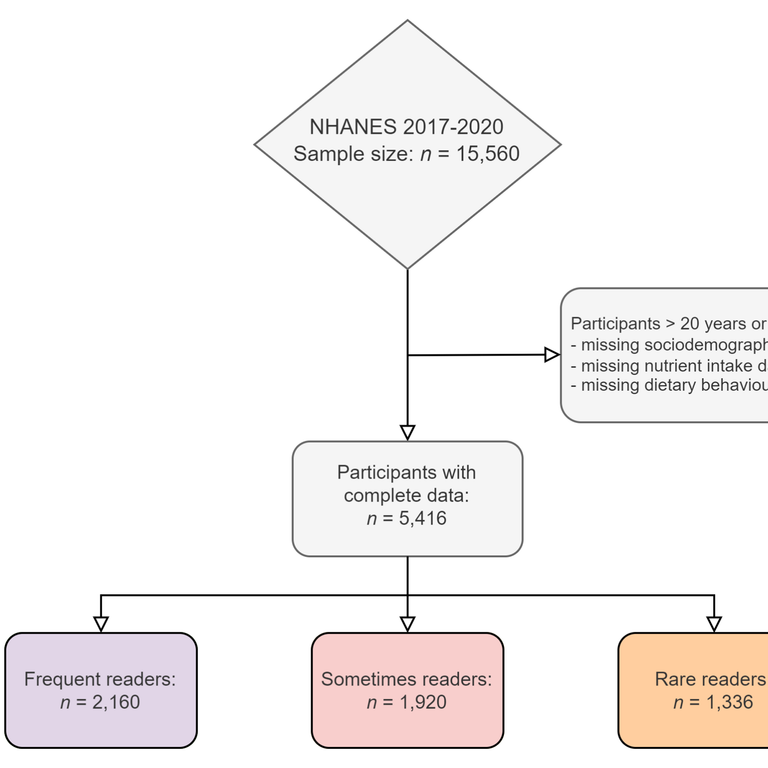
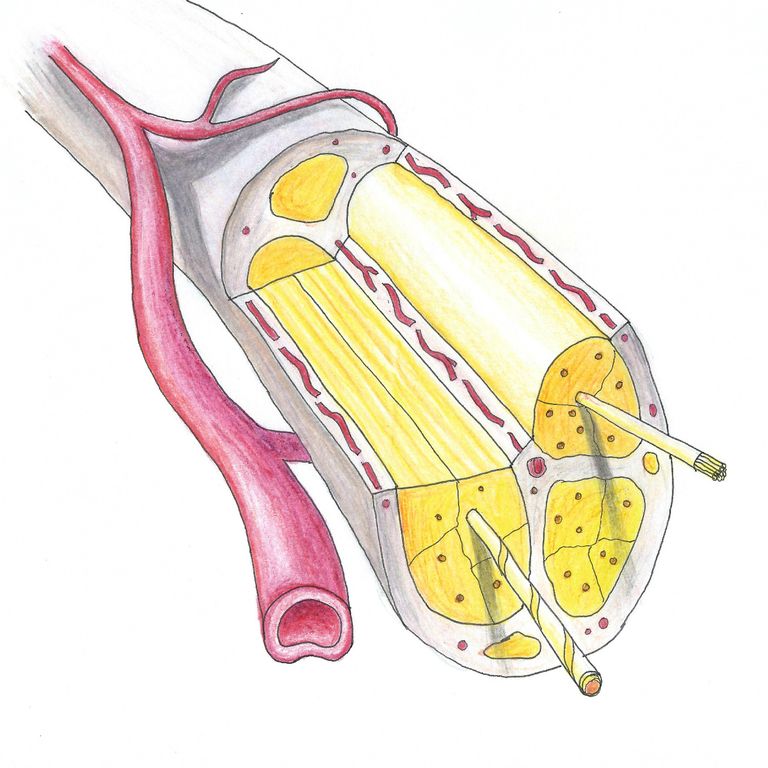
Plant-based diets and diabetic neuropathy: A systematic review
Diabetic polyneuropathy (DPN) is a debilitating condition and associated with significant morbidity, including gait disturbances, reduced quality of life, and pain, that is often resistant to conventional treatments. Treatment of DPN is based on several major approaches, including risk factor management, intensive glycemic control, and symptomatic pain management. Although some authors argue that none of the existing treatment options are satisfactory, an alternative strategy is frequently overlooked: the use of a whole-food, plant-based diet. The aim of this review was to systematically investigate whether a whole-food, plant-based diet could beneficially affect patients suffering from type 2 diabetes and DPN.
DOI: https://doi.org/10.1002/lim2.6
Storz, MA, Küster O. "Plant‐based diets and diabetic neuropathy: A systematic review." Lifestyle Medicine 1.1 (2020): e6.
Atrial fibrillation risk factor management with a plant-based diet: A review
Atrial fibrillation is now a major public health problem with tremendous implications on the economy and the world's healthcare systems. Numerous risk factors and clinical conditions that are associated with the development and progression of atrial fibrillation have been identified in the past. Within the last decades, a shift in awareness toward modifiable conditions has been observed and risk factor management has gained significant momentum. In light of this, dietary approaches are of paramount importance. Whole-food plant-based diets emphasizing grains, legumes, vegetables, fruits and nuts and excluding most (or all) animal products have recently experienced a significantly increased interest. The purpose of this review is to present evidence suggestive of a plant-based diet being a valuable tool in atrial fibrillation risk factor management.
DOI: 10.1002/joa3.12254
Storz MA, Helle P. Atrial fibrillation risk factor management with a plant-based diet: A review. J Arrhythm. 2019 Nov 6;35(6):781-788.


Reduced Diabetes Medication Needs With a Plant-Based Diet
Within the next section, the currently available HbA1c-lowering plant-based diet intervention studies are compared in terms of their medication lowering potential. They key questions are as follows: Is a reduction in daily insulin dosage (or oral antidiabetic drug dosage respectively) a realistic and achievable goal when switching to a plant-based diet? How many HbA1c-lowering plant-based diet intervention studies actually demonstrated this and which concomitant factors are important to consider?
DOI: 10.1080/07315724.2019.1698381
Storz MA. Reduced Diabetes Medication Needs With a Plant-Based Diet. J Am Coll Nutr. 2020 Aug;39(6):574-577.
Dietary Acid Load Correlates with Serum Amino Acid Concentrations after a Four-Week Intervention with Vegan vs. Meat-Rich Diets
Chronic low-grade metabolic acidosis is now a common phenomenon in the Western world. The high dietary intake of sulfur-containing amino acids in the form of processed meats results in an excessive release of acid in the form of protons and non-metabolizable acidic anions. The kidneys produce increasing amounts of ammonia to excrete this acid. This process requires the breakdown of the nitrogenous amino acid glutamine, which the body provides by breaking down muscle tissue. Hitherto not examined, we hypothesized that a high dietary acid load (DAL) could alter the serum concentrations of selected amino acids.
DOI: 10.3390/nu15132942
Herter J, Lederer AK, Ronco AL, Hannibal L, Huber R, Storz MA. Dietary Acid Load Correlates with Serum Amino Acid Concentrations after a Four-Week Intervention with Vegan vs. Meat-Rich Diets: A Secondary Data Analysis. Nutrients. 2023 Jun 28;15(13):2942.

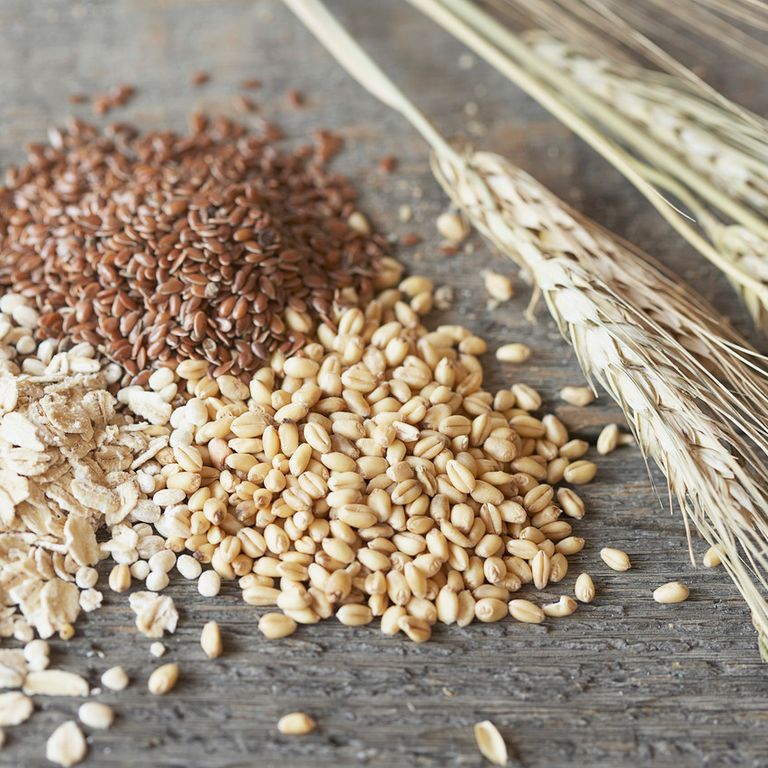
Potential renal acid load of non-dairy plant-based milk alternatives
The market for plant-based milk alternatives has been growing continuously within the last years, and numerous new food items including almond, oat, and soy milk are nowadays commercially available. The impact of said foods on the acid-base balance in humans has been rarely assessed but is of great importance for individuals who adopt an alkaline diet for health reasons. Using the Potential Renal Acid Load (PRAL) score as a measurement of the amount of acid or base a certain food produces in the human body, we analyzed n = 39 plant-based milk items available on the German market.
DOI: 10.1080/10942912.2023.2244196
Müller A, Herter J, Huber R, Storz MA. Potential renal acid load of non-dairy plant-based milk alternatives. International Journal of Food Properties. 2023 Sep 22;26(1):2128–36.
Observational and clinical evidence that plant-based nutrition reduces dietary acid load
Contemporary diets in Western countries are largely acid-inducing and deficient in potassium alkali salts, resulting in low-grade metabolic acidosis. The chronic consumption of acidogenic diets abundant in animal-based foods (meats, dairy, cheese and eggs) poses a substantial challenge to the human body's buffering capacities and chronic retention of acid wherein the progressive loss of bicarbonate stores can cause cellular and tissue damage. An elevated dietary acid load (DAL) has been associated with systemic inflammation and other adverse metabolic conditions. In this narrative review, we examine DAL quantification methods and index observational and clinical evidence on the role of plant-based diets, chiefly vegetarian and vegan, in reducing DAL.
DOI: 10.1017/jns.2022.93
Storz MA, Ronco AL, Hannibal L. Observational and clinical evidence that plant-based nutrition reduces dietary acid load. J Nutr Sci. 2022 Oct 31;11:e93.


Current Sex Distribution of Cooking and Food Shopping Responsibilities in the United States: A Cross-Sectional Study
Home cooking is an important obesity prevention strategy and associated with benefits for diet and health. Although cooking may be a joyful act of mindfulness, it also requires planning, preparation and time. Historically, women have been more likely to fulfill the role of food shopping and cooking. More recent studies suggested a transition in traditional household role assignments towards a larger involvement of males. This study examined the current sex distribution of cooking and food shopping responsibilities in the United States of America based on a nationally representative sample of 9078 citizens from the National Health and Nutrition Examination Surveys (2017-2020).
DOI: 10.3390/foods11182840.
Storz MA, Beckschulte K, Brommer M, Lombardo M. Current Sex Distribution of Cooking and Food Shopping Responsibilities in the United States: A Cross-Sectional Study. Foods. 2022 Sep 14;11(18):2840
Will the plant-based movement redefine physicians' understanding of chronic disease?
The world is experiencing a cataclysmically increasing burden from chronic illnesses. Chronic diseases are on the advance worldwide and treatment strategies to counter this development are dominated by symptom control and polypharmacy. Thus, chronic conditions are often considered irreversible, implying a slow progression of disease that can only be hampered but not stopped. The current plant-based movement is attempting to alter this way of thinking. Applying a nutrition-first approach, the ultimate goal is either disease remission or reversal.
DOI: 10.1080/20502877.2020.1767921
Storz MA. Will the plant-based movement redefine physicians' understanding of chronic disease? New Bioeth. 2020 Jun;26(2):141-157.


Hypocaloric, plant-based oatmeal interventions in the treatment of poorly-controlled type 2 diabetes
Lifestyle interventions, including dietary modifications, play a key role in the treatment of type 2 diabetes. By the second half of the last century, dietary oatmeal interventions had frequently been used in patients with diabetes; however, with the widespread introduction of insulin, this practice gradually fell into disuse. Within the last decades, the original oatmeal intervention, first described in 1903, has been modified towards a hypocaloric, low-fat, and plant-based intervention.
Storz MA, Küster O. Hypocaloric, plant-based oatmeal interventions in the treatment of poorly-controlled type 2 diabetes: A review. Nutr Health. 2019 Dec;25(4):281-290.
Special Diets and Nutrient Intakes in Morbidly Obese US Adults in Comparison to the 2020–2025 Dietary Guidelines for Americans
Morbid Obesity (MO), defined by a Body Mass Index (BMI) > 40 kg/m², is the most severe form of obesity. The risk of suffering from any chronic medical condition is almost twice as high in MO as compared to overweight. Despite obesity being one of the most serious contemporary public health concerns, there is a paucity of nutrient intake data in adults with MO. Nutritional assessments in morbidly obese adults are often based on individuals seeking weight loss surgery rather than focusing on the general community.
DOI: 10.1186/s12937-025-01088-7
Storz MA, Stübing F, Huber R. Special Diets and Nutrient Intakes in Morbidly Obese US Adults in Comparison to the 2020–2025 Dietary Guidelines for Americans. Nutrition Journal. 2025 Mar 8;24(1):37.

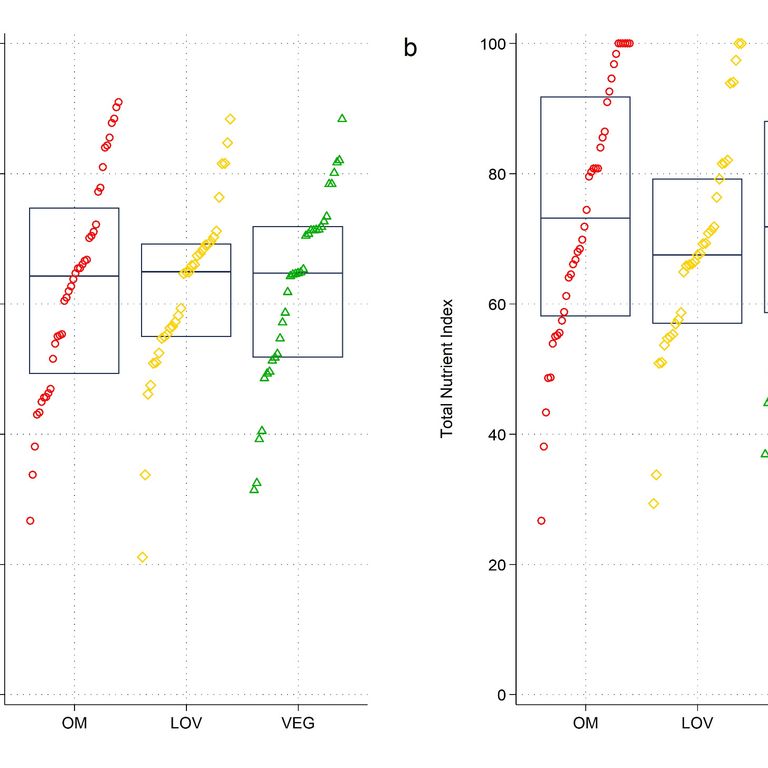
Analyzing dietary exposure to critical nutrients on a plant-based diet using the food- and total nutrient index
A novel tool focusing on under-consumed micronutrients was employed to shed a new light on nutrient supply and dietary exposure to critical nutrients in plant-based diets: The Total Nutrient Index (TNI). The TNI extends existing measures of diet quality by considering nutrient intake data from both foods and supplements. The TNI covers calcium, magnesium, potassium, choline and vitamins A, C, D, and E. The TNI was compared between omnivores, vegetarians and vegans, with a special focus on its micronutrient component scores and with regard to dietary supplement contributions.
DOI: 10.1186/s12937-025-01105-9
Storz MA, Stübing F, Hannibal L, Huber R. Analyzing dietary exposure to critical nutrients on a plant-based diet using the food- and total nutrient index. Nutr J. 2025 Mar 12;24(1):39.
Supplementation Behavior and Expenditures in Healthy German Vegans, Lacto-Ovo-Vegetarians and Omnivores: A Cross-Sectional Study
Dietary supplements may ensure an adequate intake of nutrients of concern in all diets. Supplementation behavior and expenditures in vegetarians and vegans, however, have been rarely discussed in the literature. In this article, we reviewed supplementation expenditures in a cohort of 115 healthy adult German vegans, lacto-ovo-vegetarians and omnivores, characterized by comparable sociodemographic data. Supplementation behavior (excluding protein supplements) was re-analyzed to estimate yearly supplementation expenditures by dietary group.
DOI: 10.1177/15598276251319305
Herter J, Müller A, Niederreiter L, Keller M, Huber R, Hannibal L, Storz MA. Supplementation Behavior and Expenditures in Healthy German Vegans, Lacto-Ovo-Vegetarians and Omnivores: A Cross-Sectional Study. AJLM. 2025 Mar 17;15598276251319305
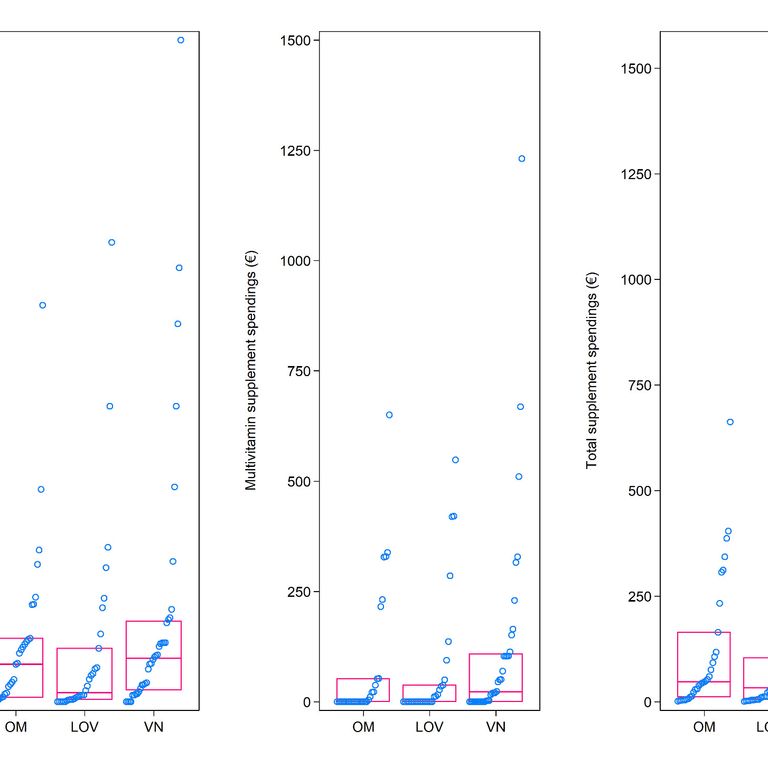
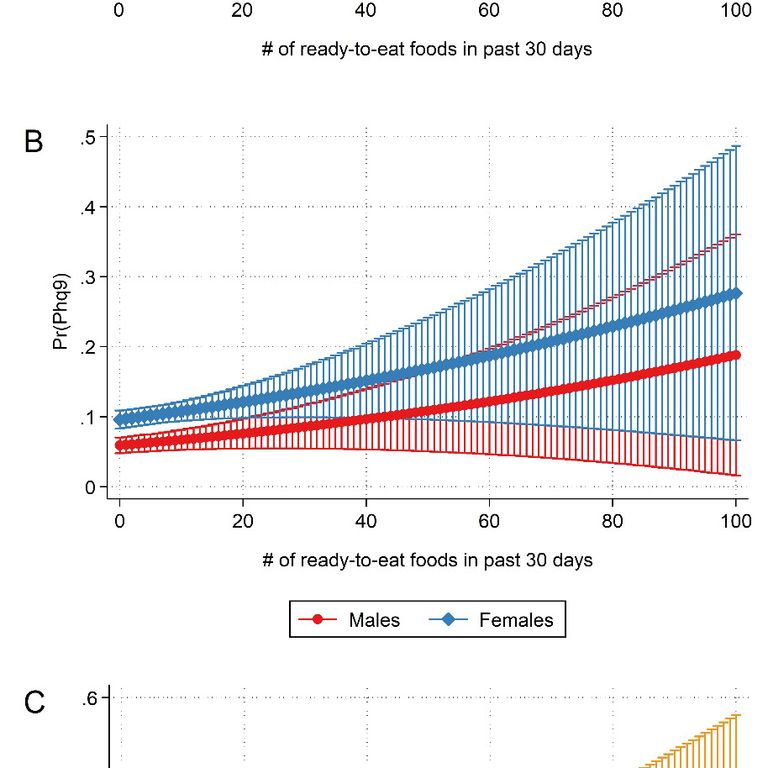
Ready-to-eat food intake associates with PHQ-9-based depression in US adults: a cross-sectional study
Depressive disorders are a contemporary global public health problem and amongst the leading causes of disability worldwide. Ready-to-eat foods require minimal preparation time and are designed to maximize consumer convenience while minimizing consumer efforts. Nutritional properties of ready-to-eat foods, such as their high saturated fat and sodium content, have been linked to depression. Studies from the United States (US) of America investigating the association between ready-to-eat food intake frequency and depression are scarce, although North America is currently the largest ready-to-eat food market.
DOI: 10.1186/s12889-025-22930-x
Storz MA. Ready-to-eat food intake associates with PHQ-9-based depression in US adults: a cross-sectional study. BMC Public Health. 2025 May 13;25(1):1755.
Portrayal of animal factory farming practices in young children’s books with reference to the German context
Farming practices associated with intensive animal farming have been criticized by public health authorities and animal welfare advocates (e.g. narrow gestation crates for pigs, mother-calf separation immediately after birth, overcrowded stables using slatted flooring, and the extensive use of prophylactically administered antibiotics). Polls indicate that the public is often unaware of the extent and implications of factory farming practices and children in particular are often not taught realistically about the farm sources of their food and the conditions in which animals are raised. The present study sought to explore the extent to which the aforementioned farming practices were depicted in a convenience sample of German children’s books (n = 38).
DOI: 10.1080/27685241.2025.2523391
Storz MA, Dean E. Portrayal of animal factory farming practices in young children’s books with reference to the German context. NJAS: Impact in Agricultural and Life Sciences. 2025 Dec 31;97(1):2523391.


Secular Trend Analysis of NHANES Data Suggests Only Modest Increases in Health-Related Lifestyle Advice Delivered by Health Professionals
Chronic non-communicable diseases are widespread in the US and exert a high burden on its society. Poor lifestyle habits contribute to this contemporary public health crisis. To address the prevalence of non-communicable diseases and related risk factors in Americans, we studied trends in US health professionals' delivery of health-related lifestyle advice. The major aim was to identify trends and long-term directions in the predicted probability of lifestyle advice delivery. We conducted a secular trend analysis of 18 426 participant reports over 4 consecutive National Health and Nutrition Examination Survey cycles (2011-2018) to estimate the predict probability of their receiving specific lifestyle recommendations by a health professional.
DOI: 10.1177/00469580251404788
Storz MA, Dean E. Secular Trend Analysis of NHANES Data Suggests Only Modest Increases in Health-Related Lifestyle Advice Delivered by Health Professionals. INQUIRY. 2025 Sep 1;62:00469580251404788.
The culinary medicine elective "Prospective Physicians For Fibre" improves fibre intake and nutrition knowledge in German medical students
Nutrition education remains an underdeveloped component of medical training globally. This gap in knowledge can hinder physicians from effectively integrating nutrition into clinical practice, creating a significant barrier to supporting meaningful dietary changes in patients. We developed a culinary medicine elective for 3rd to 6th year medical students titled “Prospective Physicians For Fibre (PPFF)” to promote students’ knowledge about the importance of fibre and its benefits in health and disease. The four-week fibre-focused, mixed-methods, short-term, culinary medicine elective PPFF was tested in a non-controlled pilot study.
DOI: 10.1186/s12909-025-08547-z
Stübing F, Herter J, Huber R, Lee MF, Storz MA. The culinary medicine elective "Prospective Physicians For Fibre" improves fibre intake and nutrition knowledge in German medical students. BMC Med Educ. 2026 Jan 6;26(1):148.

Selected Publications
Related to Plant-Based Nutrition
Storz MA, Müller A, Niederreiter L, Zimmermann-Klemd AM, Suarez-Alvarez M, Kowarschik S, et al. A cross-sectional study of nutritional status in healthy, young, physically-active German omnivores, vegetarians and vegans reveals adequate vitamin B12 status in supplemented vegans. Annals of Medicine. 2023 Dec 12;55(2):2269969.
Ekmeiro-Salvador, JE, Storz, MA, Nebot-Bas, J . Food literacy in Venezuelan adolescents: a cross-sectional study. International Journal of Adolescence and Youth. 2024; 29(1). https://doi.org/10.1080/02673843.2024.2358082
Müller A, Zimmermann-Klemd AM, Lederer AK, Hannibal L, Kowarschik S, Huber R, Storz MA. A Vegan Diet Is Associated with a Significant Reduction in Dietary Acid Load: Post Hoc Analysis of a Randomized Controlled Trial in Healthy Individuals. Int J Environ Res Public Health. 2021 Sep 23;18(19):9998.
Related to Lifestyle Medicine
Storz MA, Brommer M, Jeitler M. Adherence to Selected Pillars of Lifestyle Medicine in the United States: A Cross-Sectional Analysis. American Journal of Lifestyle Medicine. 2023 Oct 13;15598276231205254.
Storz MA. When the Desire for Lifestyle Medicine Counseling Remains Unfulfilled: A Case Report. J Patient Exp. 2021;8:2374373521996949.
Storz MA. Should plant-based hospital meals be the law? An American experience. Hosp Pract (1995). 2020 Aug 30;1–3
Storz MA. Is There a Lack of Support for Whole-Food, Plant-Based Diets in the Medical Community? Perm J. 2018;23:18–068.



